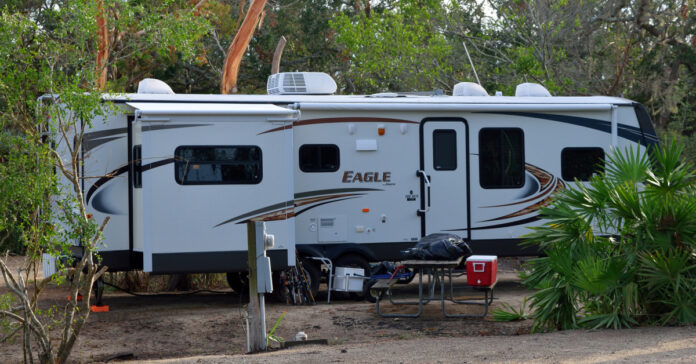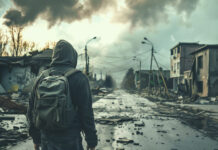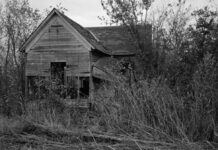
RV sales are up and show no sign of slowing down. COVID-19 has allowed more and more people to work remotely, which can mean a nomadic lifestyle. Housing prices are soaring, and some people who cannot afford to buy a home and are opting to live in an RV or trailer instead. People who retire early often spend a few years traveling across the country in an RV.
This raises the question: Can RVing and a nomadic lifestyle and preparedness overlap? Can you do both?
I know of preppers who live in an RV, so the answer is obviously “yes,” but I personally would not do it. To be more specific: I have no objection to going somewhere in an RV for weeks or even months, but I would never sell my house, put all my stuff in storage, and live solely in an RV. I am too tied to my stuff, especially my preparedness stores.
The Plus Side of RVs for Survival
Mobility
When you are in a recreational vehicle, you can get up and go on a moment’s notice. Worst case, all you have to do is what you do any time you move from one campsite to another: load up any gear you had outside, retract any extended rooms, roll up the awning if you have one, disengage the leveler, unplug from your utilities, and turn the ignition key. Maybe you have to hitch up, maybe not.
OK, I’m over-simplifying it, but it’s easier to evacuate the area when your residence has wheels.
Once you are underway, you don’t have to stop as often. If there are two of you, one can make sandwiches while the other drives and you can switch off to go to the bathroom. One can nap while the other drives. You really only need to stop for fuel, which depending on your mileage, speed, road conditions, and fuel tank(s) might be every 400 to 800 miles.
Capacity
Back when I had kids living at home, our bugout plan included taking two vehicles: an SUV and a pickup truck. Even that combo won’t carry as much as a good sized RV. Not only are these things loaded with hidden storage compartments, people who are living on the road already have pretty much everything they need close at hand. After a few months or a few trips, you have perfected what you need to lead a comfortable life on the road, emergency or no emergency.
After you throw your bugout bags in the car and double check your list, there will still be things you forgot or didn’t expect you would need because you have not bugged out before. But the experienced RVer will not have that problem.
Equipment
Likewise, recreational vehicles have beds, a place to cook, a water tank, maybe even solar panels on the roof and a few deep cycle 12-volt batteries. If it’s a large model, it may tow a small vehicle or a toy-hauler might mean you have access to a 4-wheeler or dirt bikes, which could come in useful. Sure, the generator is noisy and may run out of fuel, but it’s better than nothing.
When we planned to bugout to our retreat, we didn’t have a refrigerator, mattresses, a bathroom, a refrigerator, solar panels, etc. If we made it to our retreat, all of that was up there, and we had enough beds and mattresses to sleep 10, but what if we didn’t make it in one day?
I can see the advantages of an RV, especially for bugging out.
On the Minus Side
Mobility
Yea, RVs have wheels, but they are not very fast and can’t handle off-roading. Once the SHTF, someone might think your RV looks like a big fat target. After all, they will think your fridge and cupboards are full of goodies. I would rather be in an 18 wheeler with a nice, large sleeper. Drop your trailer and away you go with far more power and much bigger bumpers than most RVs.
RVs are also not very tough and offer limited ballistic protection. If you have nowhere to go but away from the city, I think your best bet would be to head to some remote camping area with limited resources or go down a back road and park where you are unlikely to be noticed. Maybe cover up with some camo tarps. Possibly park behind an abandoned building or inside an old barn. Then hope things blow over, because most of the advantages of an RV, like refrigeration and bathrooms, will go away after being cut off from civilization for a few days or weeks.
Surviving on your own by hiding out in an RV is not a long term strategy that provides me with a warm, reassuring feeling.
Capacity
Sure, the RV is bigger and has more storage space than our truck, but it has nothing on our current house or our old retreat. Our garage holds far more than any RV.
Just like the RV has everything you need to sustain life, so does a house, only more so because it’s probably bigger.
RVs are not built to stay warm in the winter. They burn propane, and what are you going to do when the canister is empty? There is a reason RVers head north in the summer and to the South in the winter. But after the SHTF, you won’t have that option. The mobility that serves the RVer well early in the disaster becomes problematic.
I think it comes down to location. If I lived on the outskirts of Boston, I’d hop in the RV and hightail it towards a wilderness area in Vermont. If I already lived in a secluded house in Vermont, I’d sit tight instead of jumping into the RV to escape a societal collapse.
Equipment
Like capacity, I have to give the edge to a retreat, a homestead or a house well outside the suburbs. Obviously, your house has all the equipment you would find in an RV, and even more, like a fireplace or wood stove.
The people in my area may live in small houses, but they have lots of heavy equipment. It’s not unusual to pass houses that have bulldozers, excavators, tractors with front-end loaders and other accessories parked in a shed or under a carport, plus ATVs and side by sides. Apparently it’s not just YouTubers like the Morgans who have this kind of gear. I never saw so much privately owned heavy equipment before I moved out here.
Another advantage of a house or retreat is the infrastructure you have in place, like a garden, chicken coop, firewood pile, storage shed, etc. We have a wood stove and gravity-flow water. You may have fruit trees, berry bushes, you know the area, and you probably have friends and know some of your neighbors. If you park your RV somewhere random, that infrastructure and support system is missing.
To RV or Not to RV
If you have to live in an RV for economic reasons, then do it and don’t worry about prepping beyond storing food, keeping your gas tank full, and getting a water filter.
If you want to live in an RV to travel about and see the country, then go for it. You only live once, chances are you have been looking forward to this for years, so why not? The world as we know it hasn’t ended yet, chances are it won’t for a few more years.
If you want to live the RV life AND be prepared, then have a place to go if the SHTF. For example, we had friends who were in their RV in Arizona when COVID-19 struck and everything went into lockdown. They stayed where they were for a few weeks, but many of the campgrounds they planned to go to had closed. Finally, they left and headed to her mother’s house. How much easier would that transition have been if they had pre-positioned a few supplies at her mother’s house?
Think also about having a cache, a place where you have supplies stashed. This could be a storage unit where you store a few hundred pounds of dried food, a couple firearms, and a couple thousand rounds of ammo.
So, RV your heart out, but have a retreat or at least a friendly place where you can go in an emergency. Then use that mobility to drive there as soon as you can when it looks like the you-know-what is about to hit the fan.






